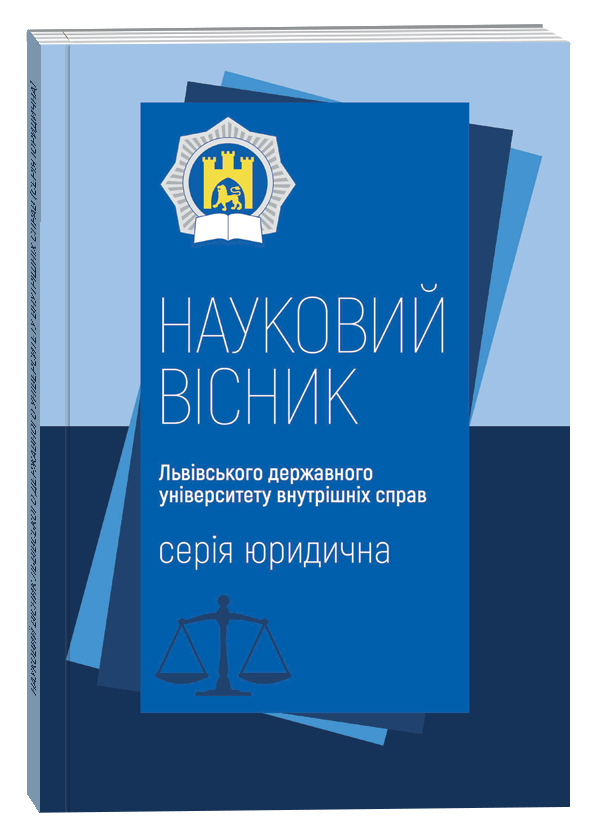THE CONCERT OF ADMINISTRATIVE EMPATHY IN THE ACTIVITIES OF THE NATIONAL POLICE OF UKRAINE: THEORETICAL FOUNDATIONS OF IMPLEMENTATION
DOI:
https://doi.org/10.32782/2311-8040/2025-2-3Keywords:
administrative empathy, National Police of Ukraine, administrative activities, emotional intelligence, communicative competence, martial law, crisis managementAbstract
The article explores the concept of administrative empathy as an essential tool for optimizing the activities of the National Police of Ukraine under martial law conditions. It analyzes the international experience of studying administrative empathy in the field of public administration and administrative activities. It is established that scholars consider it a multidimensional category, the components of which in the activities of civil servants are: 1) the empathic capacity that arises as a result of a shared emotional experience, either explicitly or implicitly; 2) the identification of this shared emotion; 3) the establishment of a connection with the emotion as it is experienced by another person; 4) the communication of understanding from the civil servant to the person who has shared their emotional state. At the same time, the analysis of scientific research allows the conclusion that there are various approaches in the literature regarding empathy: as a stable personality trait (trait empathy) and as a situational phenomenon (state empathy). However, the issue of the “organic” emergence of empathy – that is, the natural process of synthesizing innate characteristics and socially formed competencies – remains insufficiently explored. The article justifies the necessity of integrating administrative empathy into management and law enforcement practices in order to increase trust in the police, improve communication with the public, and reduce social tension in crisis conditions. This is possible thanks to its key functions: reducing social tension, enhancing the effectiveness of communication, and ensuring the quality of decision-making. The concept of administrative empathy in the activities of the National Police of Ukraine is defined as a multidimensional managerial category that combines the ability of law enforcement officers to recognize the emotional state of citizens, analyze their needs, and adapt law enforcement practices to the specific situation. It is proposed to consider administrative empathy as a concept that includes cognitive, affective, behavioral, normativelegal, and institutional components.
References
Edlins M. Developing a model of empathy for public administration. Administrative Theory & Praxis. 2019. № 43(1). С. 22–41. DOI: 10.1080/10841806.2019.1700459.
Edlins M., Dolamore S. Ready to Serve the Public? The Role of Empathy in Public Service Education Programs. Journal of Public Affairs Education. 2018. № 24(3). С. 300–320. DOI: 10.1080/15236803.2018.1429824.
Krznaric R. Empathy: Why It Matters, and How to Get It. New York : TarcherPerigee, 2015. 272 p.
Zitko P.A., Schultz K., Owens G.L. A Critical Review of Empathy Research: A Deficit in Evaluating the Organic Emergence of Empathy. ResearchGate. 2022. Preprint. URL: https://www.researchgate.net/publication/361353975.
Rai T.S., Fiske A.P. Moral psychology is relationship regulation: Moral motives for unity, hierarchy, equality, and proportionality. Psychological Review. 2011. 118(1), 57–75. https://doi.org/10.1037/a0021867.
Sharma S., Sabharwal M. Antecedents of an Inclusive Leader in Public Organizations. Journal of Social Equity and Public Administration, 2025, 3(1). P. 158–172. https://doi.org/10.24926/jsepa.v3i1.5865.
Жук Н.А. Комунікативна компетентність як основа професіоналізму патрульних поліцейських : дис. ... д-ра філос. наук : 053 «Психологія». Київ, 2023. 244 с.









